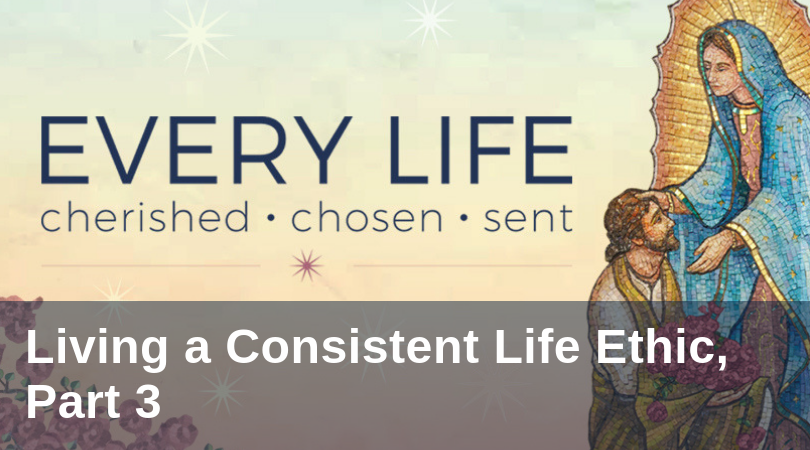Practicing Hospitality, Welcoming Life
A consistent life ethic begins at home. Mother Teresa, one of the most beloved canonized saints of the 20th century and a great defender of human dignity, said very simply in her acceptance speech for the Nobel Peace Prize:
“Love begins at home, and it is not how much we do, but how much love we put in the action that we do . . . I want you to find the poor here, right in your own home first. And begin love there.” (December 11, 1979)
This is the less glamorous side of social justice and defending life at all of its stages. It is a hidden, often unnoticed contribution to the wealth of God’s mercy flooding the world. And I would argue it’s much harder than the more visible, heroic deeds that draw attention. Because we are usually so drawn to outward, measurable actions, cultivating wonder, hospitality, and kindness in our own homes has become unnatural to many of us. In fact, we need to undergo a paradigm shift in order to live into this necessary, foundational work.
1. Being Rather Than Doing
Before marriage and children, my life looked very different than it does now. I was actively involved in the life of the Catholic Worker community while teaching full time, serving both children and the homeless. I was a vocal member of the pro-life movement, holding megaphones at rallies and writing and speaking often on human dignity. I made music with friends and hosted gatherings regularly.
My husband and I found out we were pregnant a month after our wedding (and have been every two years since then). My life was profoundly changed by marriage and motherhood. I stopped teaching full time. I didn’t participate nearly as much in the Catholic Worker community, and outside commitments had to take second place to my husband and children. My center of gravity shifted to the home, imposing limits on my friendships, my work, my energy, and my time. I was being forced into a different way of defending and upholding human dignity, and it was both painful and profoundly transformative. I had to learn how to slow down and go at the pace of the little ones in my life, which taught me much about the true presence of God in the world. Instead of being able to quantify what I did for others, I had to learn how to simply be with others, namely my children.
2. Openness to Wonder
Children are naturally oriented toward receiving life and the other with wonder and gratitude. There is a reason why Jesus insisted, “Unless you become as a little child, you cannot enter the kingdom of heaven” (Matthew 18:3). On any given walk, my daughter will bend down and notice a tiny snail, clinging to a blade of grass. She stops to watch it closely. She asks questions and marvels at its intricate form. This hospitality to life opens our eyes to the mysterious, beautiful creation that proclaims God everywhere. While I am tempted to keep everyone on schedule, move us from activity to activity and make some kind of impact on the world around us, my children are noticing and welcoming creation, resisting the throwaway culture simply by admiring all the life around them.
The posture of hospitality that welcomes all life begins with opening my heart and indeed my entire self to my children every morning, welcoming their needs and their interests, their questions and their touch, and it leads into the hospitality of all creation, of the Creator himself in each living thing. Jesus wants to visit us every day, every moment, and there is a profound capacity to receive him in the life of the family. This is true of all relationships, however, and is a call to each Christian to wonder and presence. When our hearts are present to God’s creation and the many small ways God visits us, we are able to see with clear eyes those in need and respond to them in love. I did this very actively before motherhood, and I’ve learned to do it much more slowly and patiently through my children. Though expressions of hospitality may change, this truth has not: when we receive one of the least of these, we receive Christ.
Featured Image courtesy of USCCB; fair use.
Editorial Note: This is the third post in a four-part series offering practical approaches to living a consistent life ethic (read part one here and part two here). Subscribe below so you don't miss out on the rest of this series!





